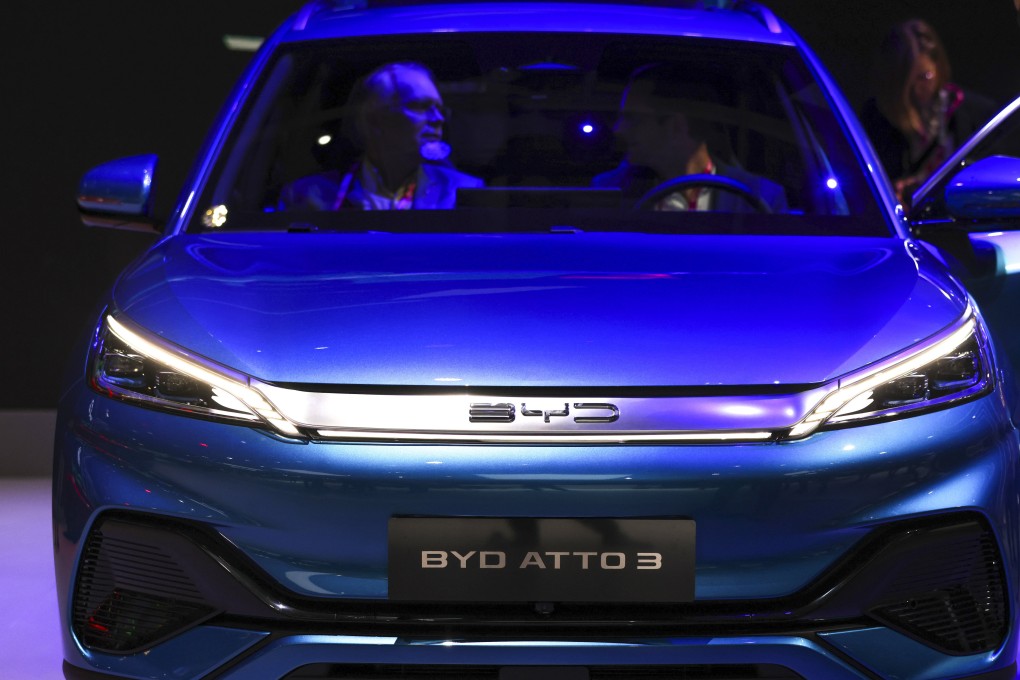Advertisement
Electric cars: China’s BYD extends lead over Tesla after stealing its crown, as Chinese drivers opt for cheaper models
- Shenzhen-based firm that recently became the world’s biggest EV maker sees record-breaking third-quarter sales thrash its US rival’s by 57 per cent
- Unlike Tesla and most Chinese rivals, which sell premium cars costing above 300,000 yuan (US$41,500), most of BYD’s models are priced below 200,000 yuan
Reading Time:2 minutes
Why you can trust SCMP
5

Daniel Renin Shanghai
BYD, the Chinese carmaker backed by Warren Buffett’s Berkshire Hathaway, has extended its sales lead over Tesla as a growing number of Chinese drivers make the switch to battery-powered vehicles at the lower end of the price spectrum.
The Shenzhen-based carmaker that dethroned Tesla as the world’s largest electric vehicle (EV) assembler in the second quarter of this year, went on to sell 538,704 pure electric and plug-in hybrid cars between July and September, almost triple the figure from a year ago, it reported earlier this month.
The third-quarter sales number, an all-time high, was 56.7 per cent higher than Tesla’s deliveries in the same period, according to the US carmaker’s quarterly earnings report released on Wednesday.
Advertisement
BYD had for the first time outsold the American giant to clinch the title of world’s biggest electric carmaker in the three months between April and June, delivering 355,021 units, up 255.6 per cent on the year.
That was almost 40 per cent more than Tesla shifted in the same quarter.
“BYD’s cars have become increasingly popular in China because more low- and middle-income drivers are opting for EVs,” said Tian Maowei, a sales manager at Yiyou Auto Service in Shanghai. “The customer base is huge in China, and BYD vehicles are turning out to be dominant in the segment.”
Advertisement
Advertisement
Select Voice
Choose your listening speed
Get through articles 2x faster
1.25x
250 WPM
Slow
Average
Fast
1.25x
